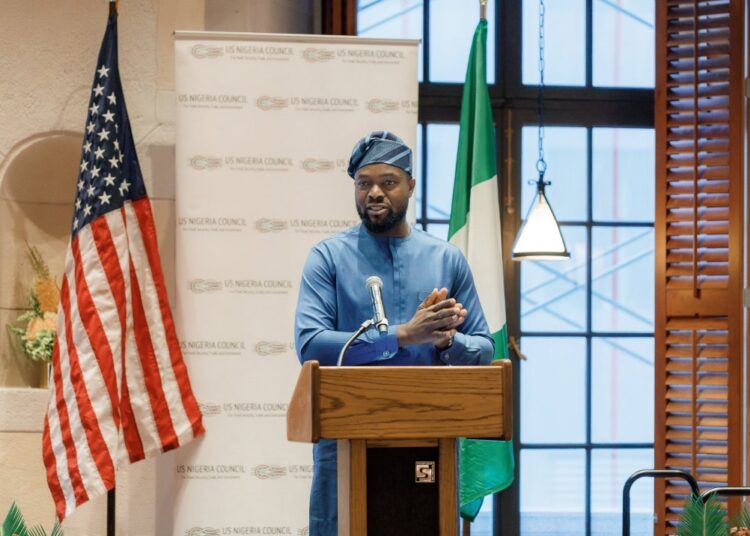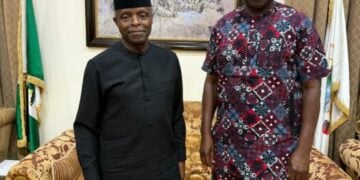Following Nigeria’s appearance at the 78th United Nations General Assembly, Minister of Communications, Innovation, and Digital Economy Bosun Tijani laid out our country’s technological priorities heading into the future. The UN event covered many different facets of Nigeria and its social and economic development, just days after signing further scientific and technological collaboration with Cuba. After these events, here are the main takeaways on the evolving tech economy of Nigeria, one of Africa’s strongest.
Nigeria’s Tech Economy
This year’s UNGA provided Nigeria with a great opportunity to demonstrate its emerging tech economies to the global community. According to Kepios data, roughly three million Nigerians went online between 2022 and 2023, representing 2.5% of the country. This brought internet penetration rates to over 50%, though mobile phone usage remains much higher at 88%.
Such internet access is the key to growing and maintaining a tech economy that can compete in an increasingly digitized world. Tech economies revolutionize both government and private enterprise, changing how we engage with informative and entertainment media. As such, there are great benefits to entrepreneurs and customers alike. One growing online industry in Nigeria is sports betting and the informational sphere surrounding it. For example, Nigerians can access the internet to find a Bet365 registration tutorial, using information there to ensure they engage with verified betting services in a safe way. That principle extends to all areas of governance, business, and everyday life, where Nigerians can be better informed about their options as citizens and consumers.
With Nigeria’s young population on the rise, the country is quickly adapting by embracing its tech economy. However, many Nigerians still don’t have desktop access to the internet and fast speeds. That’s why the prevalence of mobile phones is so strong in the data – it’s cheaper to run and requires less infrastructural development. This is a trend that’s replicated across Africa, especially sub-Saharan West Africa.
Nigeria’s Three Core Economic Pursuits
As part of this year’s UNGA event, Bosun Tijani has created a three-point plan that aims to nurture Nigeria’s tech-focused economy. It focused not only on Nigeria’s continued growth but also on reaching sustainable development goals and other achievements that are respected and rewarded on the world stage.
That’s why Tijani’s three core pursuits revolve around seeking partnerships, something that we have already seen with the Memorandum of Understanding that was signed with Cuba before the event. At UNGA, those core pursuits involved AI development and training, economic diversification through technology, and bolstering the Universal Service Provision Fund.
Further AI training needs no introduction. Dr. Tijani writes: “We aspire to put Nigeria on the global map as a premier destination for AI model training.” In recent years, the competency of AI has increased at a dramatic rate thanks to efforts from OpenAI. It’s set to disrupt a lot of industries and provide opportunities for developing nations to flourish, growing their tech economies at a rate never experienced before.
Technological diversification is part of President Tinubu’s plan to aid Nigerian startups through FDIs – Foreign Direct Investments. Instead of just being a consumer base for non-Nigerian companies, Tinubu believes the key to “setting the stage for sustainable growth” is by helping Nigerians to get their own startups off the ground too.
Lastly, the Universal Service Provision Fund is to be expanded through partnerships and outside investment. Dr. Tijani writes that “our goal is to connect a vast number of unserved and underserved communities in Nigeria,” arguing that the country’s tech economy revolution must include the whole country. Divides between urban and rural areas are extreme in Nigeria, as in many African nations, so rural areas need infrastructure improvement to reap the benefits that areas like Lagos already enjoy.
Through these goals, Dr. Tijani has brought Nigeria’s future development into focus. He has given the Nigerian government actionable strategies that should serve the emerging tech economy and the citizens in it. Only time will tell if the government is able to deliver them. However, as interest in Nigeria’s tech economies grows, we’re sure to see more initiatives that aim to capitalize on the country’s bright future.





